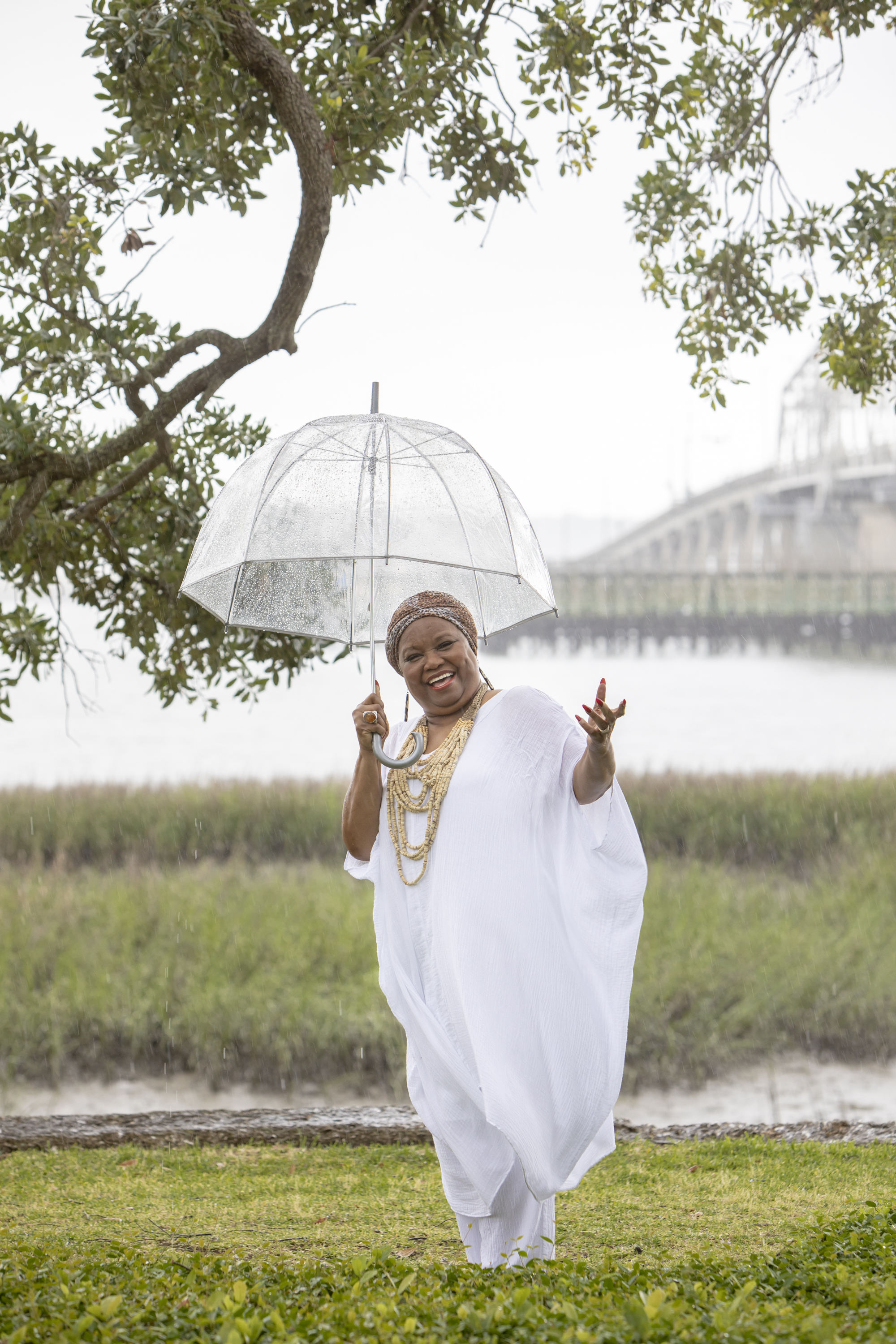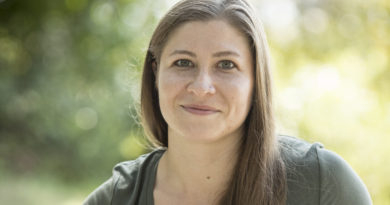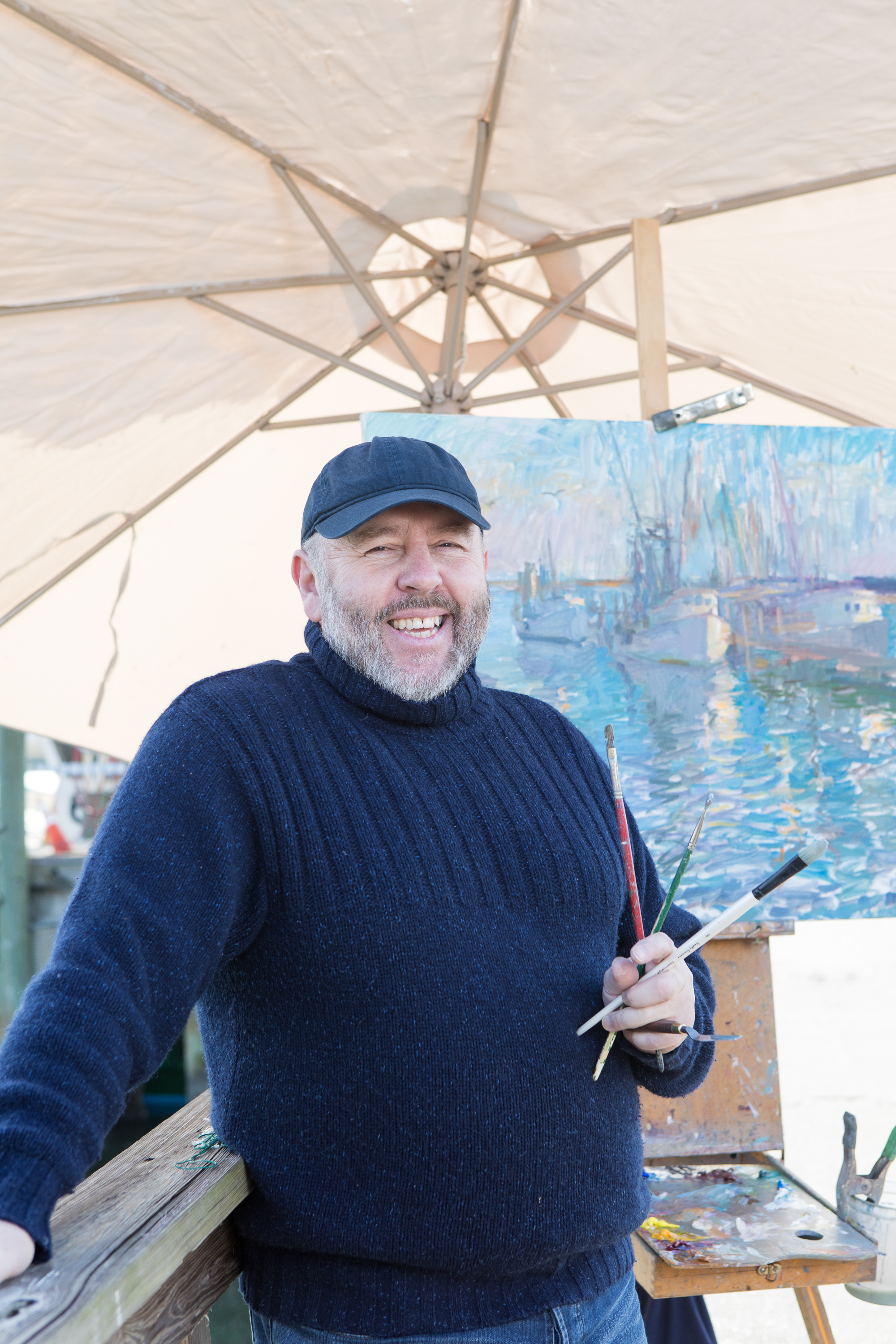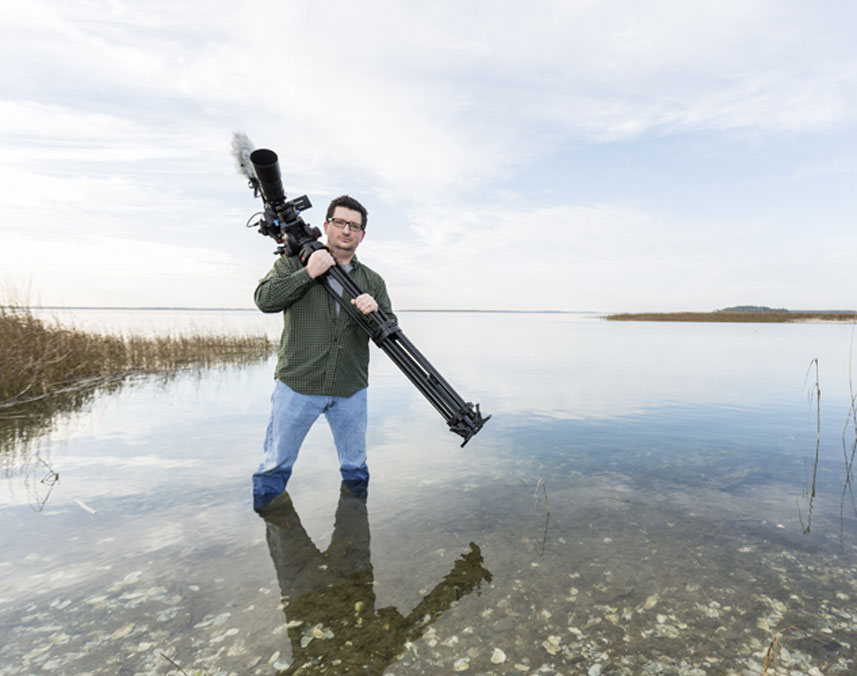The Business of Culture and Entertainment
Dr. Marlena Smalls
story by Cindy Reid
photos by Susan DeLoach
Dr. Marlena Smalls is truly the Voice of Gullah. Founder of The Hallelujah Singers, an internationally known vocalist and entertainer, a cultural ambassador from the lowcountry to the world, she has been there and done that twice over and then some. She continues to educate, to entertain and to expand our horizons. A true American treasure, she sat down with us to share some of her wisdom on the business of culture and entertainment.
What are some of your current musical projects?
Two successful shows at USCB Center for the Arts, collaborating with vocalists Elaine Lake, Velma Polk and the Lowcountry Jazz Band, under the direction of David Hershey, have kept me busy. Together we performed a Tribute to Etta James, Motown and More; with a third show, Ain’t Nobody’s Biz, coming up this year. I greatly value working with USCB and it is a great joy to get on stage with Elaine and Velma.
How did your career in music start?
Interestingly enough, I started out founding a school of music with my mother where we taught voice, piano and dance. From our original five students, we eventually built the school to one hundred and ninety five pupils. Now from the school came out something even bigger. You see we did a wonderful play called “Hail Mahalia” with the music school students, and the parents of those children formed the first nucleus of ‘The Hallelujah Singers.’
Tell us about The Hallelujah Singers
I founded The Hallelujah Singers in 1990 specifically to preserve the melodies and storytelling unique to the South Carolina Sea Islands. We were the first Gullah Ambassadors. The Hallelujah Singers use entertainment to inspire, celebrate, and preserve the West African heritage which has shaped today’s Gullah culture.
Other important firsts?
I worked for the City of Beaufort as the Arts Coordinator, and in that capacity I created the first Gullah Festival in 1984. The festival came about because I was trying to create a project where we could fund raise for the arts, particularly children’s projects, and highlight Black culture at the same time.
How did you become the “Voice of Gullah?”
Even before the first Gullah Festival I was getting the word Gullah out there. Based on the work I was doing, there became quite an interest. Media outlets were contacting me for interviews and information on Gullah culture, the BBC filmed me three times and I did several interviews with NPR. At that point, then South Carolina Governor Riley and Senator Strom Thurmond were contacting me, essentially the state of South Carolina said ‘we need to talk to you!’ That is really how I became the ‘Voice of Gullah’ and I continued to represent South Carolina and conduct interviews on ABC, NBC, at the Atlanta Constitutional Journal and so forth.
In addition to being an artist, you were also in charge of the business of your work.
The creation of The Hallelujah Singers was the opportunity of a lifetime. As a troupe, we went to Japan, Germany, France, Spain, England and Scotland. We travelled the world. However it was very time consuming; it grew so fast so quickly that cash flow became a problem. I had a wonderful friend whose husband was a retired banker and he worked with me to complete a prospectus which helped me obtain a business loan. That was very unusual in the entertainment business, because you have no tangible assets. Keeping up with the business side of entertainment is a rollercoaster.
What do you want people to understand about Gullah?
I want people to understand Gullah is not stuck in time. It’s more than just being born somewhere from Wilmington, North Carolina to Jacksonville, Florida. It’s the DNA. It’s the West Indies, Brazil and Africa. We cut the culture of Gullah short when we think of slavery and slavery alone. By doing that we exclude essentials such as diet, wisdom and religion. The Gullah was wise and creative enough to accept the culture so they could survive. The African survived. He entangled himself like a vine on a tree. The culture of Gullah is bigger than Beaufort.
What do you think about the current focus on Reconstruction?
When we look at Reconstruction, which we are starting to do here in Beaufort, we see it never completely took because it took fifty one years for the African to achieve equality. Fifty one years for the right to housing and education and healthcare. We are still not equal in how the African is perceived. This is a lack of education. We must be vigilant in making sure all Americans are educated. A campaign of diversity. A campaign of ‘See me’- to see what we have each brought to this country. We can do this by including a truer picture of history in the classroom.
This leads to your involvement in children’s education?
Yes, this is why children’s education is important. When I do cultural presentations in a classroom I start with a world map and work through food. I ask the children ‘do you know even if you have never left your hometown, you have travelled the world?’ We go through the origins of pasta, of frankfurters, of sweet potatoes and rice, of various spices. I ask the children to talk to the oldest person you can, to ask them to give you something to represent your heritage. Over the years I have gotten Irish war beads, a coffee cup from Peru, French bread made at home, various combs, a piece of a kilt, all sorts of things.
What is your current children’s project?
I have adopted the Mossy Oak Elementary School. At the end of this year the children will be collaborating with me and illustrating my children’s book. Next year I will have the children involved with music. The children are wonderful and I get great joy from the classroom.
What would you tell a young woman embarking on an entertainment career?
I would tell her, ‘You need to be kind.’ Because kindness has worked for me. I would say to her, surround yourself with positive and wise people. That’s what I did and that helped me to build my business. As I look back one person in particular was so meaningful in my life, and that was Harriet Keyserling. She had me come to her home. We had tea and talked. ‘Let me help you’ she said. She was kind and open. Also Jayne Leigh Powell was very important to me, she became my business partner. We were like sisters, and then she was a surrogate mother to me until she went on to Glory.
So I say you need to be kind, you need to be helpful, you need to share with mankind. Be kind.
Your favorite place in Beaufort?
The waterfront park. I have been here long enough to see the changes in the waterfront, and they correlate with the changes in my life. In the past, I worked with the city of Beaufort, and I planned events there, and now I am not working for the city and I occasionally sing from the stage. Now I get in the swings and I watch people, some I know, some I don’t, and I have quick conversations. God speaks to me there.
Feeling Blessed and Grateful
I would like to say I am very thankful to Beaufort South Carolina. They embraced me and my children when I arrived here and I will forever be eternally grateful. I was able to share Gullah and could not have done it without them.
I was blessed with so much after as I matured in my music and life. God allowed me to sing with my daughters, Tracey McGhee and Sumitra Stewart, and my sister Gladys Jenkins shared her gift of song with us. They were a blessing and inspiration to me over the years as we performed and kept Gullah in the forefront.
Also, I found my best friend and Sister, Peggy Bing-O’Banner, in this beautiful Lowcountry. The Hallelujah Singers produced five CDs over the years that I pray will forever leave an imprint on the lives of all who hear them. It is my desire that our music will speak for itself as it lays the path for future generations to hear and learn of our wonderful Gullah culture. Life is good.




